A Cuppa with Rhi O'Hanlon

Hi Rhiannon, please tell us a little bit about yourself and your background in naturopathy.
I recently graduated with a Bachelor of Health Science, majoring in Naturopathy. You can find me nestled into the paddocks within the hills of Byron Bay. I live a slow yet busy life, no two days are the same, yet I’m woven deep into routine. My life at the moment is a yin and yang of leisure and work. Within leisurely moments you can find me soaking up the sun, reading a book, I adore connecting with friends over a meal, or a wine, cooking, and frequenting the infrared sauna. Within working moments you will find me hand in hand with my laptop, researching, writing, and all the rest. I recently launched an online naturopathic clinic where I consult with beautiful women, and men, virtually, while also seeing clients face-to-face at Herb Remedy in the Byron industrial estate!
Why did you decide to specialise in women’s health and the role gut health plays in female physiology?
I feel this stems from both a deep clinical fascination with the gut microbiome and personal health issues that were very reflective of the interrelationship between the gut and female sex hormones. I have naturally always gravitated towards this area of health and find a great sense of fulfilment supporting women to connect back to their true self.
What are some common symptoms to look out for that might indicate issues with our gut health?
The way the gut tries to communicate is so unique for each individual who presents to the clinic— we could be looking at alternating bowel motions, bloating, abdominal pain, reflux, burping, food sensitivities, and nutrient deficiencies. While also seeing things like acne, poor immunity, allergies, fatigue, headaches, mental health disorders, and female reproductive complaints. In some cases, there may be underlying gut issues with no gut symptoms at all. The human body is a remarkable thing, it’s all about understanding the body as a whole to interpret the driving force of disease.
When should someone who is experiencing these symptoms reach out and seek help from a naturopath?
Whenever they feel comfortable and ready. Naturopathy, while harnessing the subtle simplicity of nature has the power to support both acute and chronic disease states. No matter where someone is on their healing — health journey, it’s more about their level of commitment to change over the severity of their condition.

Could you explain how an imbalanced gut may affect hormone levels and disrupt a woman's holistic well-being?
Absolutely. Simply, if our gut health is compromised, our detoxification pathways are compromised, and if our detoxification pathways are compromised i.e. the liver and bowels, our body will have a hard time breaking down and removing hormones from the body. Instead, they are bound up and led back into circulation, thus leading to hormonal imbalances and a disruption to wellbeing. This whole process is governed by what is known as the ‘estrobolome’— an oestrogen metabolising gene set encoded by our gut microbiota.
The gut-brain connection is a hot topic lately, could you explain how gut health ties into mental and emotional balance, and do you have any lifestyle changes that may help to nurture this connection?
Gut health ties into mental and emotional balance in several ways. What I consider when I work with someone clinically is the microbial composition of the gut and whether there may be dysbiosis and leaky gut present. In dysbiotic states where pathogenic (bad) bacteria outgrow the beneficial, we give rise to intestinal permeability, where contents from our gut leak through into circulation, where they shouldn’t be, leading to an inflammatory state known as leaky gut. As a consequence our immune system is impacted which has a flow-on effect on our nervous system and emotional well-being. The inflammation that is occurring in the gut, in combination with the increase in intestinal permeability, weakens the barrier around our brain influencing mood balance and susceptibility to mental health disorders.
The best lifestyle change to remedy this situation and nurture the connection between the gut and brain is the connection itself. Connect with yourself, connect with others, connect with nature. Get to know yourself. The deeper the understanding you have of yourself, the deeper you can care. Hold yourself, support your stress, unwind, breathe, meditate, stretch, flow, and move your body. Journal, dip into affirmation, be mindful, visualise and manifest.
When it comes to gut health, how big of a role do dietary choices really play? Are there certain types of foods that promote our gut ecosystems?
Food is EVERYTHING. What we eat, how we eat, and when we eat, are all a part of the narrative of our gut health. The bacteria in our gut literally feed from the food that we consume daily. Particles from the food we eat make their way through the entire digestive tract to get to the large intestine where our gut bugs act on them, turning them into metabolites known as short-chain fatty acids— which hold so many beneficial properties for our gut microbiome and overall health. It is interesting to note that our gut microbes orchestrate the fermentation process of foods/fibres within the gut, altering the pH to a more acidic environment, inhibiting the growth of pathogenic, or bad bacteria, and encouraging the growth and diversity of our good gut bugs!
In terms of what we should be eating, I don’t always like to hero any one food in particular as diet diversity is key here. Our bacteria like new foods, they like plant foods, and they like fibre, a lot! For a good, healthy gut we want to be consuming up to 30 different plant foods per week … I know, wow. In saying that, my go-to fav foods for my microbiome right now are stewed apples on top of my porridge, bone broth first thing in the morning on an empty stomach, miso, & bitter greens.
Other top gut-loving foods to enjoy daily: fresh, seasonal, colourful fruit and veg— in particular artichokes, onions, garlic, leek, apples, bananas, citrus + green leafy veg, legumes & beans, nuts & seeds, psyllium husk, oats, wholegrain and wheat bran.
It’s also important to avoid certain foods that can aggravate and disturb microbial balance— think things like highly processed foods, refined sugars, excess alcohol, caffeine and animal fats. Additionally, I feel it’s also really important to address the state we are in when we are eating. Are you relaxed? Do you connect with the food that is in front of you? Are you eating something you enjoy? Are you distracted? Are you chewing your food thoroughly before swallowing?

Are there any specific botanical allies that you turn to when addressing gut health concerns in women?
Bitters! Ginger, gentian, chen pi, are all very well-indicated herbal companions for the gut, supporting healthy digestion through the stimulation of digestive juices and stomach acid, also supportive of stress by activating our rest and digestion phase of the autonomic nervous system. Chamomile, meadowsweet, and fennel, all soothing for gut discomfort. Liquorice, a herbal anti-inflammatory for the gut, works well alongside nutrients like glutamine, zinc carnosine, vitamin A, and SB for things like mild inflammation and leaky gut. Pomegranate and nigella, are both selective anti-microbials, meaning they target the ‘bad’ bacteria rather than eradicating all, good for dysbiotic states with their herbal companion, garlic.
We'd love to hear your thoughts on long-term gut health maintenance. What advice do you offer women who aim to sustain a vibrant, diverse gut microbiome throughout their lives?
Stress less. Haha. We can never have a vibrant, happy, healthy gut microbiome if the body is under any form of stress weakening our HPA axis (our natural stress management system). Becoming resilient to emotional stressors, mastering good quality sleep patterns and supporting our circadian rhythm, moving our bodies and making time for exercise, learning the art of blood sugar balance and heroing that for longevity, continuing to eat well and prioritising nourishing, whole foods, find what brings you joy in life and don’t let that go, enjoy social connections, don’t forget to engage with nature and slow down, ground, nature bathe, relish in the small things.
My favourite stress supporting act— nature immersion. Spending quality time, alone, outdoors. Listen to the birds, take in the green, and breathe in the fresh air. Switch off for a little while, be barefoot and really connect, to the ground and to yourself.
What Mayde Tea product have you been loving lately?
I absolutely adore the Energise blend! It has been such a sweet, warming support for me as the weather cools and my motivation starts to slip off in the afternoon. The papaya gets me, so yummy! I also cannot go past an Earl Grey, I am a tea-in-the-morning kind of girlie, no coffee for me and my sensitive nervous system.
What are you currently...
Listening to: Moondog by Leif Vollebekk
Reading: My Dark Vanessa by Kate Elizabeth Russell– hauntingly good
Watching: House of the Dragon
Eating: So many soups and stews, I’m absolutely loving warming, slow foods to hold me through these cooler nights
If you can find more about Rhi at here or on Instagram.

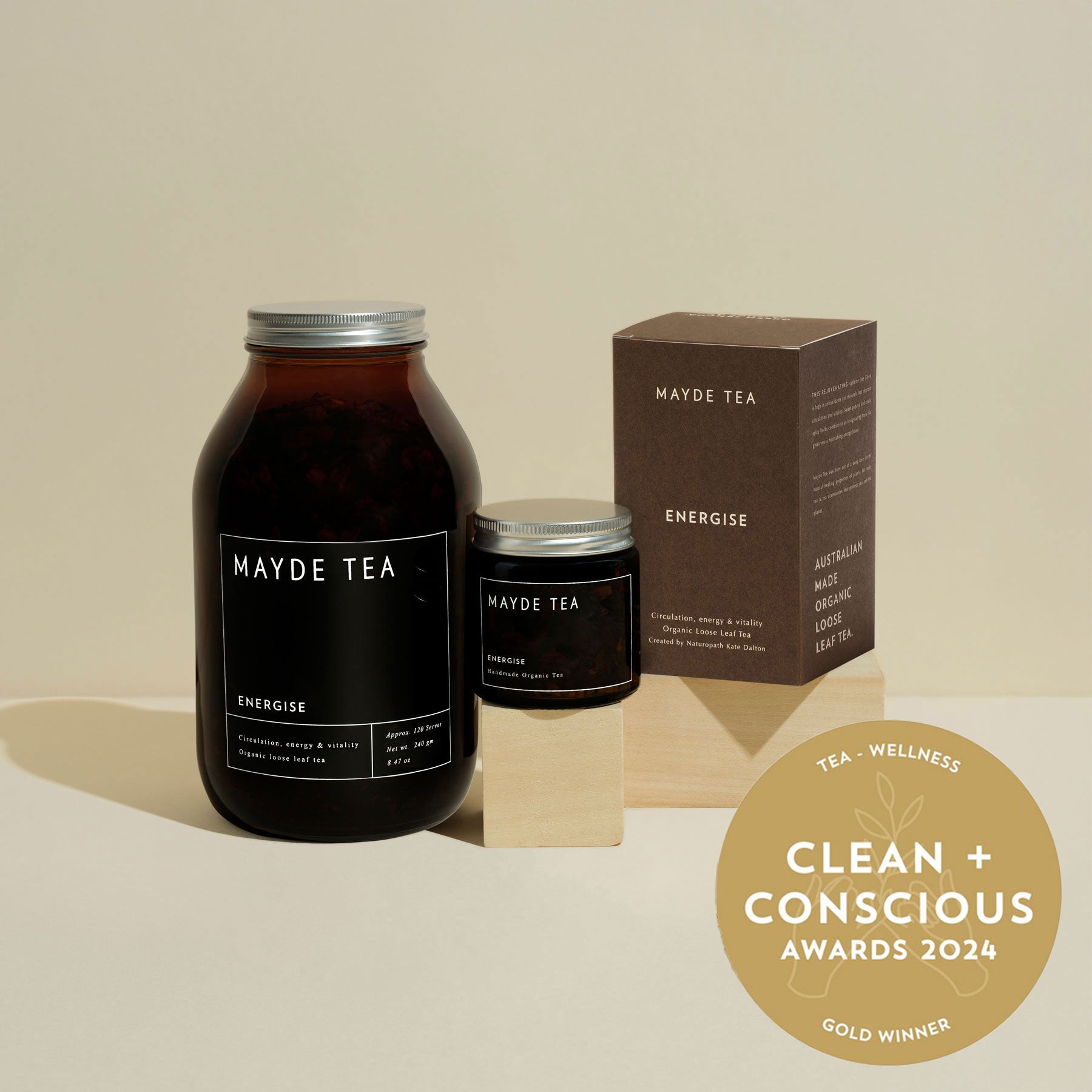
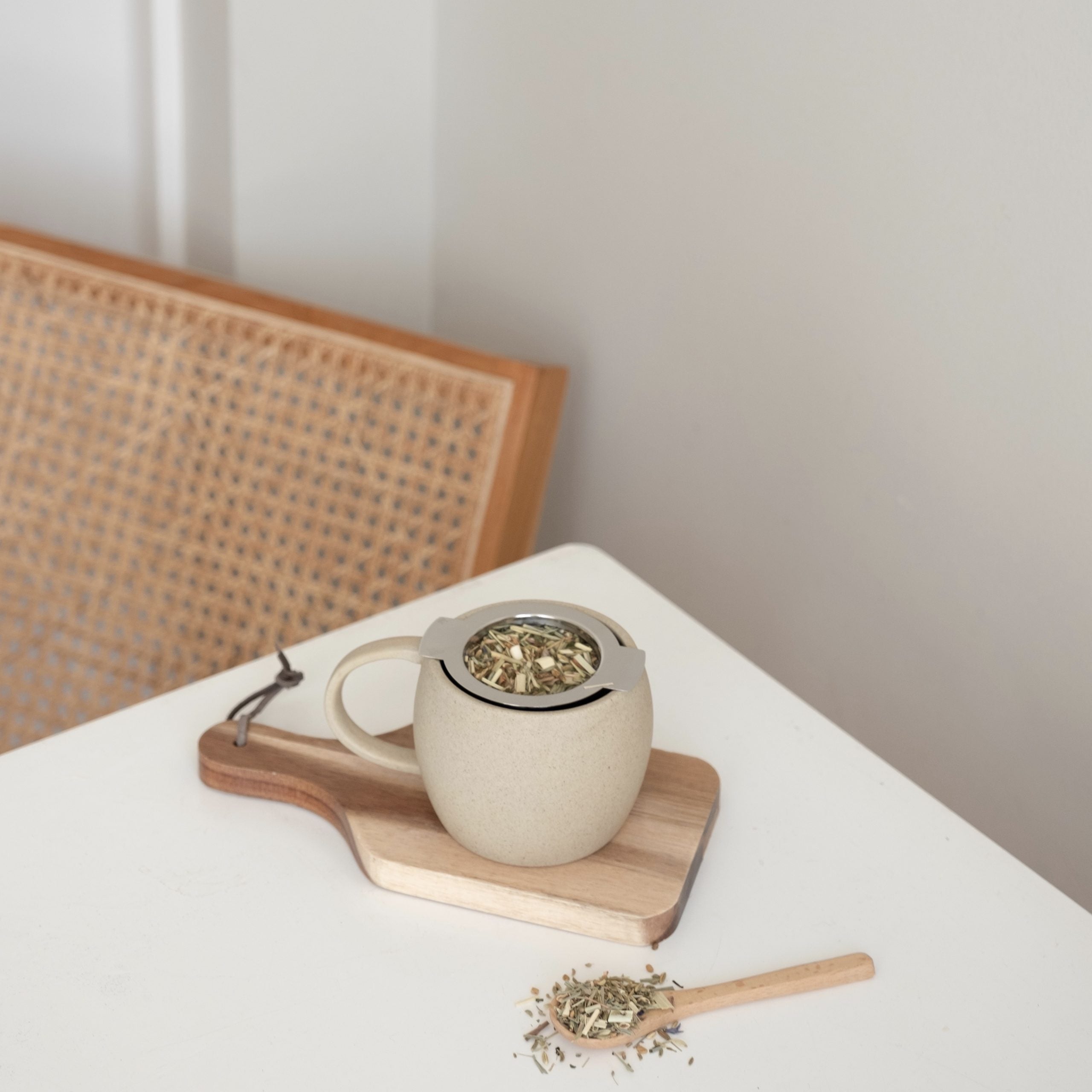
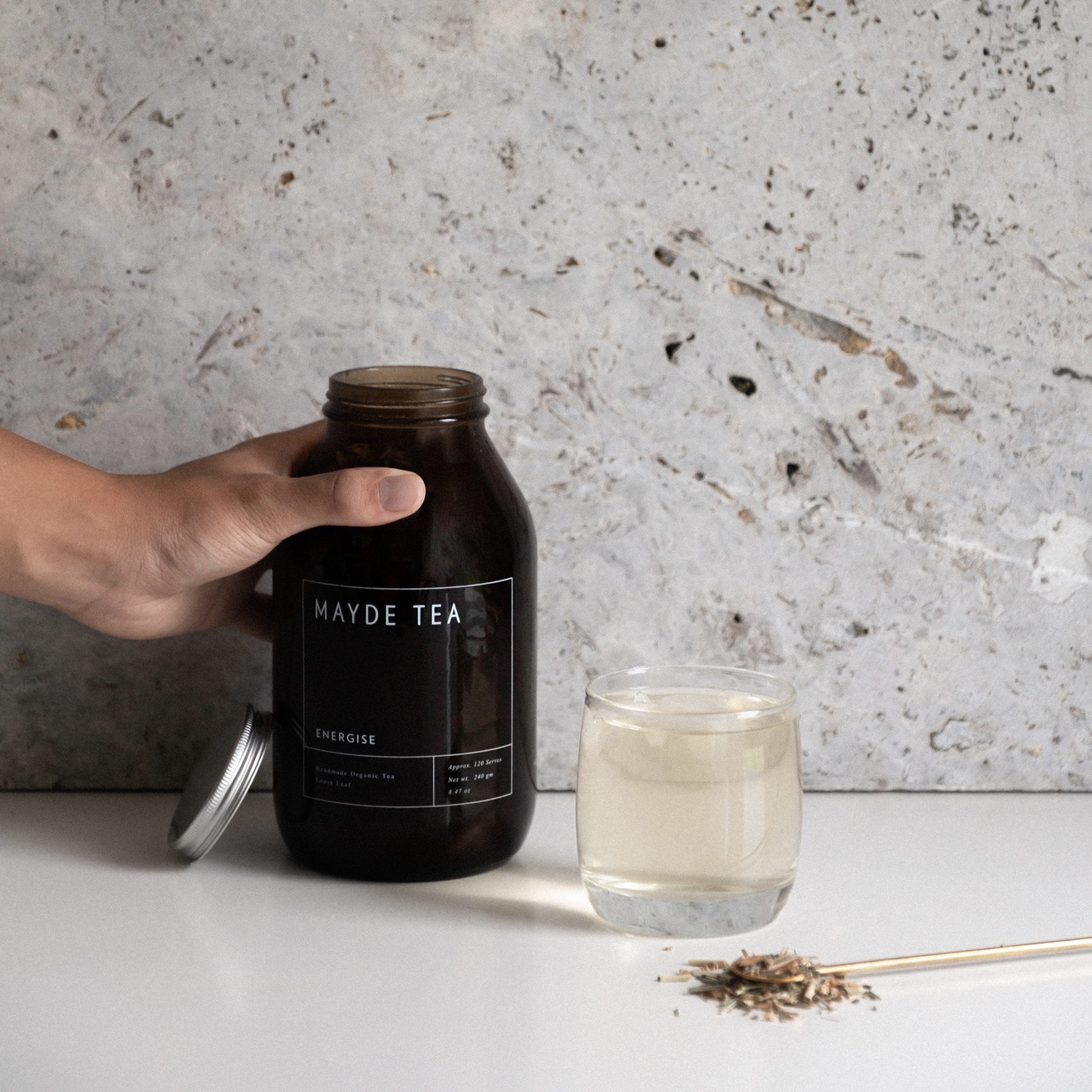
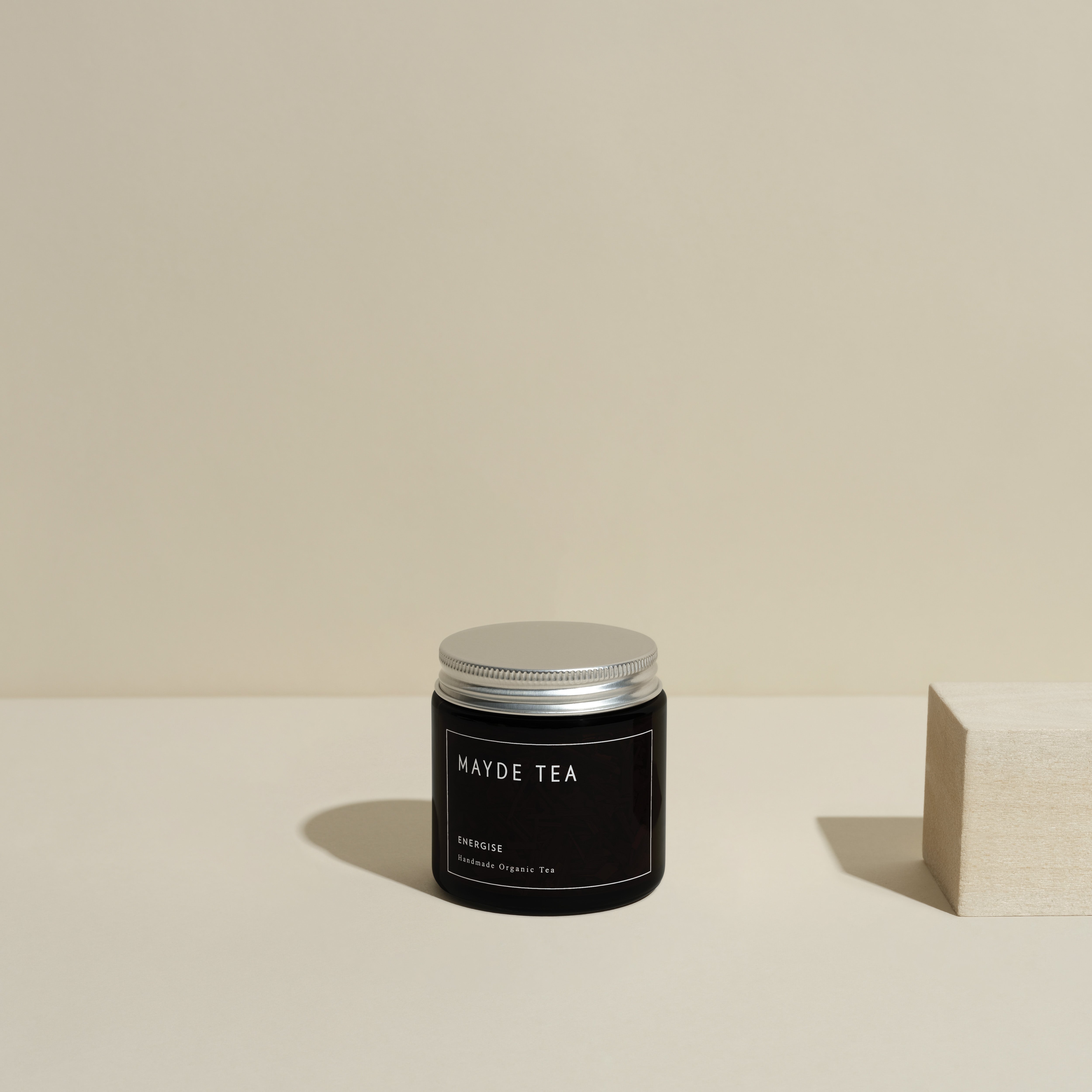
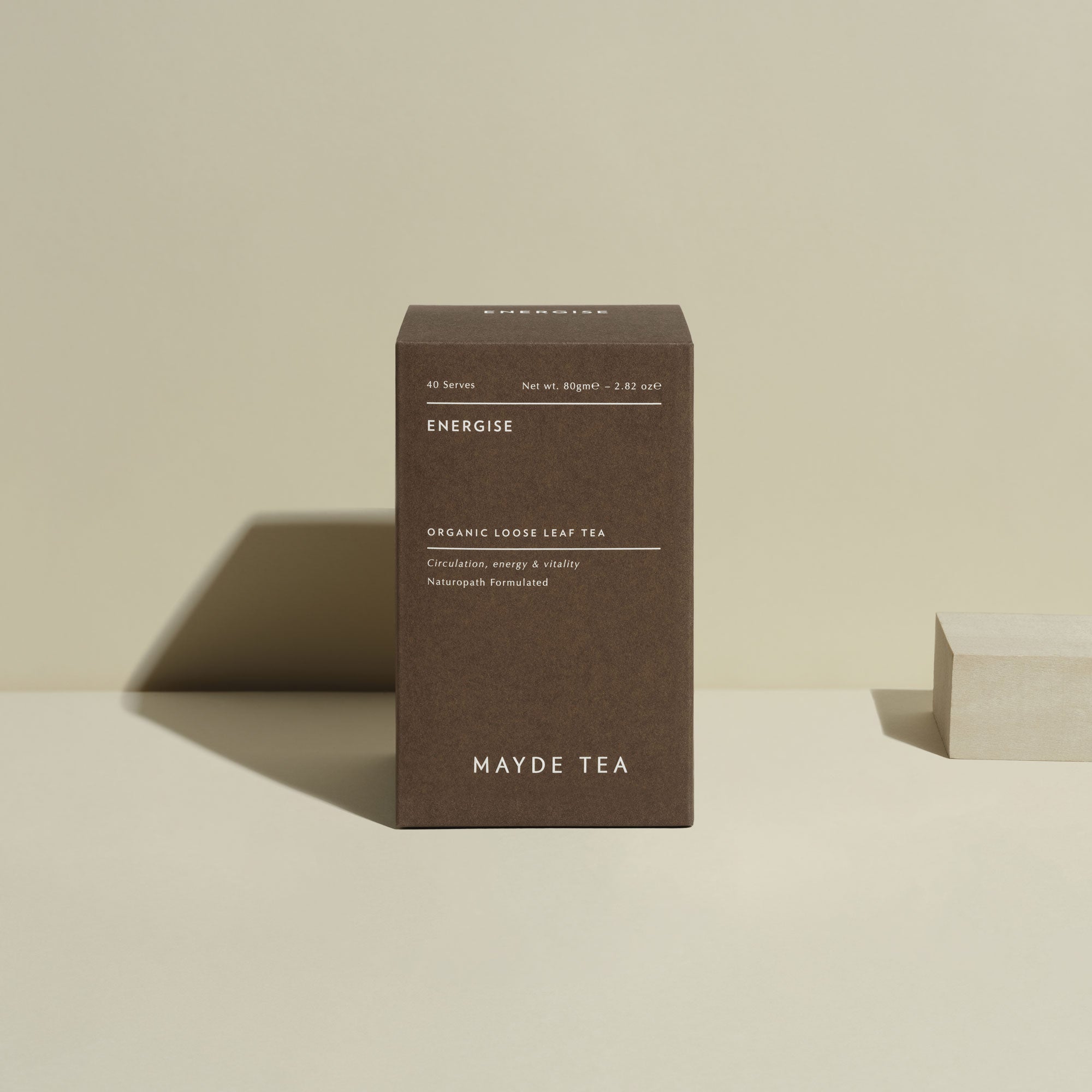
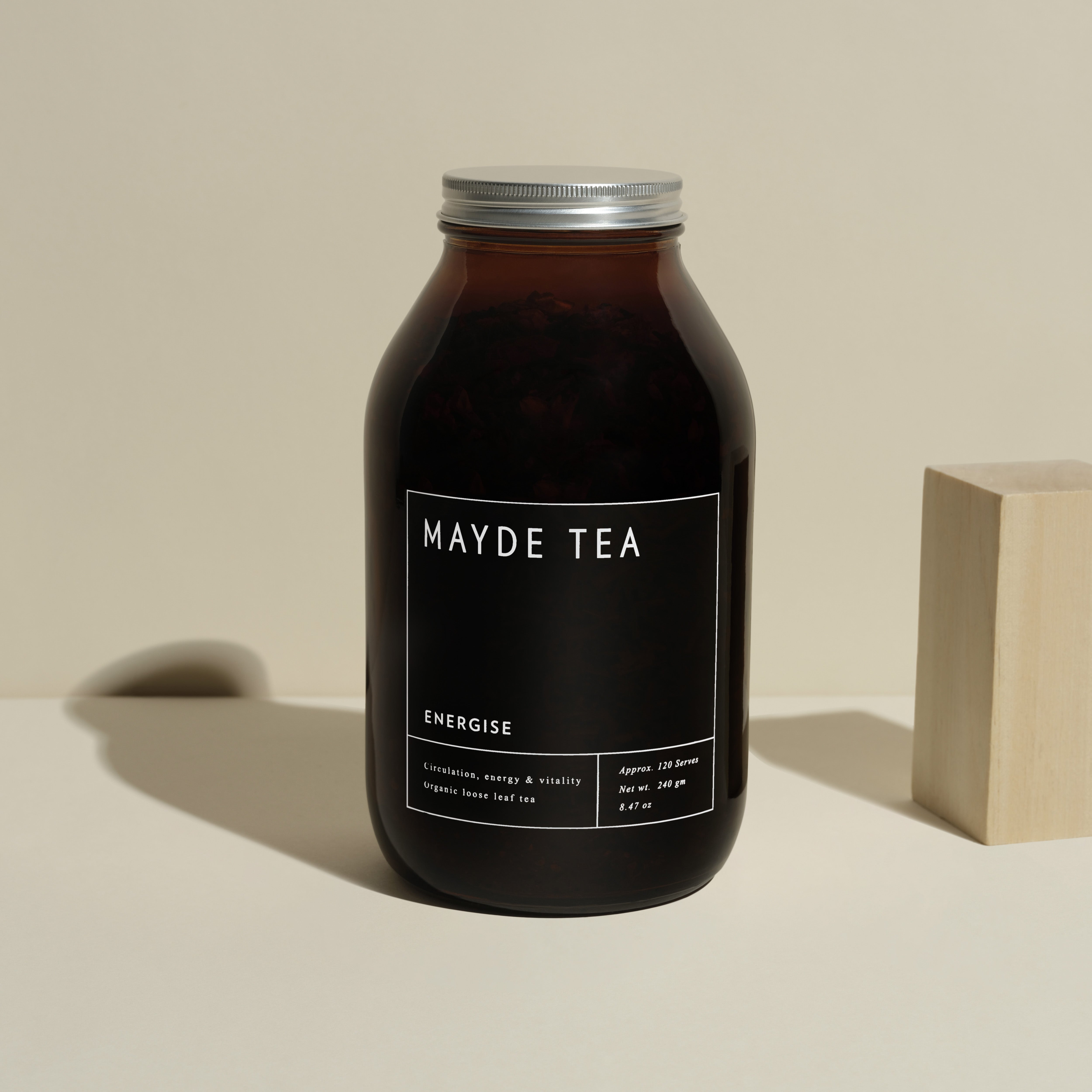
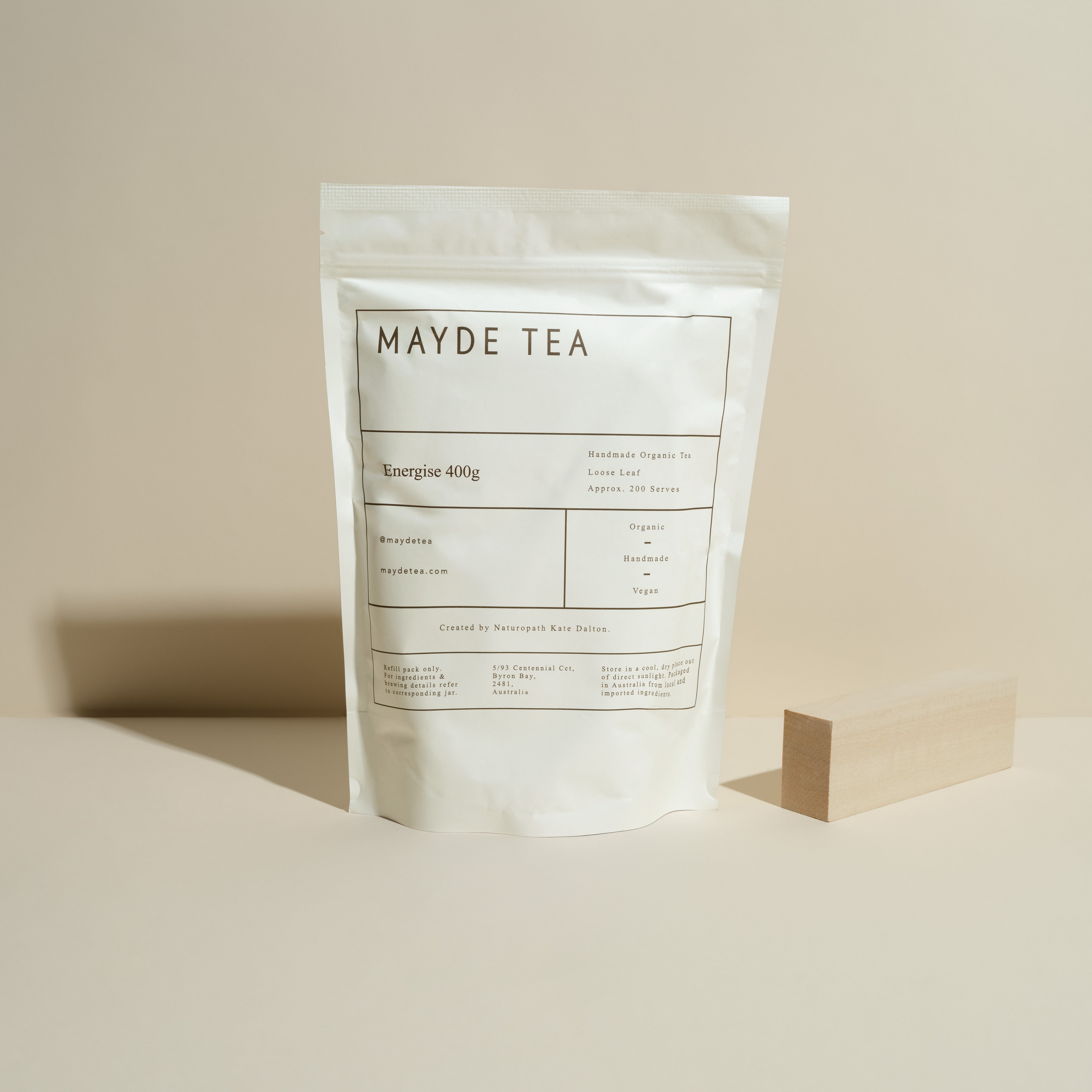
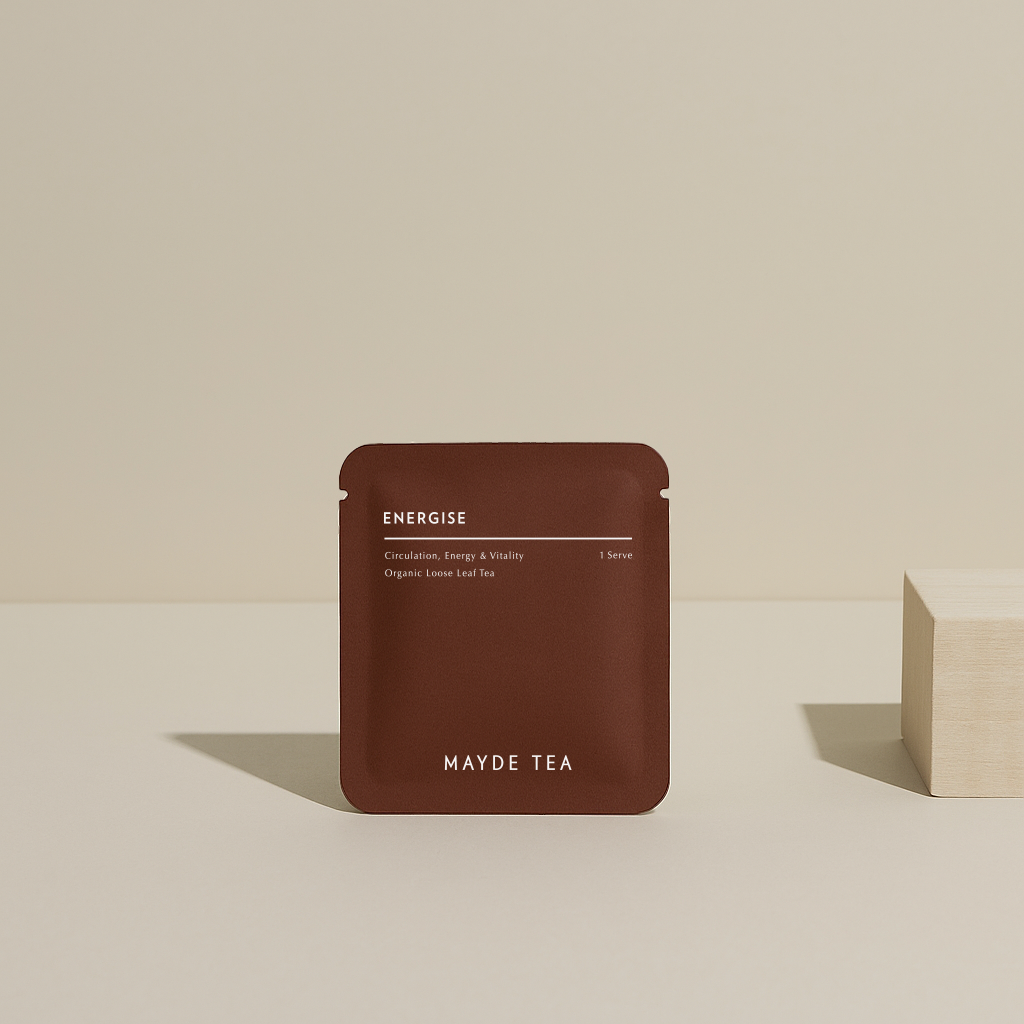
Leave a comment
This site is protected by hCaptcha and the hCaptcha Privacy Policy and Terms of Service apply.